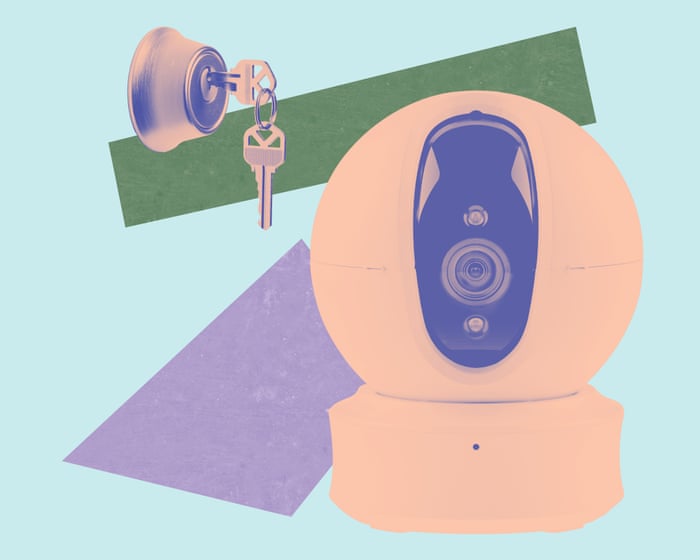Andrej Babiš is a straightforward workaholic known for his rough-around-the-edges demeanor. A billionaire and former communist who served as prime minister, he describes himself as “Trumpist,” admires Viktor Orbán, and has spent his political career fending off accusations of conflicts of interest.
Now 71, Babiš—ranked the seventh richest person in the Czech Republic with an estimated net worth of $3.9 billion—is aiming for a political comeback after four years out of power. His party leads the polls by 10 points, with support exceeding 30%.
“I want to restore normal management of the state,” Babiš recently said. A polarizing figure, his previous term from 2017 to 2021 sparked large protests. “People knew we delivered results. We ran the country like a company.”
Yet critics and observers at home and abroad are concerned about where his broad, populist pledges might lead. Some fear that, like the U.S. president whose style he admires, a second term could make his first look restrained.
Just days before an election that outgoing center-right Prime Minister Petr Fiala warned could decide whether the Czech Republic “remains firmly part of the West or drifts toward the East,” many believe the worst is still to come.
“It certainly looks like he’s going to win. We only hope he won’t be able to form a government,” said Venuše Rýdl, 68, a voter from a Prague suburb who remains unconvinced by Babiš’s promises to cut taxes, cap energy prices, and lower the pension age.
Her husband, Rudolf, 70, agreed. “We don’t believe Babiš, and we don’t trust him,” he said. “He’s a populist who looks out for himself. He showed that last time—why would it be different now? He would be bad for the country.”
But if the polls are accurate, many don’t share their skepticism. Jan, a sharp 76-year-old former small business owner from north Bohemia, is among Babiš’s supporters. “He does things for ordinary people,” Jan said. “He made an effort for us last time—raising pensions and lowering transport fares.”
Jan added, “He’s not arrogant or snotty at all. I’ve met him. He keeps his promises and surrounds himself with capable people.” Another supporter, Vladimir Tykvart, 72, believes critics misunderstand the frontrunner.
“He’s not pro-Russian—that’s nonsense,” Tykvart insisted. “He’s already been prime minister and didn’t try to align us with Russia, Slovakia, or Hungary. I don’t believe for a moment he would take us away from the EU or NATO.”
Still, exactly where Babiš would lead the country remains uncertain. His wealth stems from a vast business empire in agriculture, food processing, and fertilizers. He founded his party, Action of Dissatisfied Citizens (ANO, meaning “Yes” in Czech), in 2011.
Originally a centrist anti-corruption movement, ANO later shifted left to attract disillusioned social democrats—often older voters in poorer rural areas—before swinging sharply right to appeal to the growing conservative base.
During his previous term, ANO was part of a pro-EU liberal group in the European Parliament. Now, it co-founded—alongside Orbán’s Fidesz—the Patriots for Europe, an alliance that includes some of the EU’s most far-right and populist parties, such as Marine Le Pen’s National Rally, Matteo Salvini’s League, and Geert Wilders’ Party for Freedom.
In some ways, Babiš fits right in. He has vowed to fight the EU migration pact—even though it won’t require the Czech Republic to accept asylum seekers—and opposes the EU Green Deal, despite having helped approve it as prime minister in 2019.
He has also said he wants to end the…The “Czech initiative” to supply shells to Ukraine has led many observers to believe that Andrej Babiš might join the EU’s awkward squad, alongside Hungary’s Viktor Orbán and Slovakia’s populist prime minister Robert Fico, in resisting future aid to Kyiv. However, others are skeptical. They argue that Babiš’s politics are pragmatic rather than ideological, and he is unlikely to seriously confront Brussels as long as the Czech Republic relies on EU funds and his businesses profit from the bloc.
According to Jiří Pehe, who served as head of the political department for former Czech president Václav Havel in the 1990s and now directs New York University in Prague, “For Babiš, ideology is always a figleaf. He doesn’t mince his words and is skilled at making promises and being ambiguous on international matters. But he won’t be as radical as Orbán or Fico. He’ll obstruct, make a lot of noise domestically, and then he’ll sign.”
Pehe added that much of Babiš’s drive to return to power stems from his desire for importance and recognition, such as being photographed with world leaders, rather than launching a direct assault on Czech democracy.
Few of his supporters appear troubled by the trial Babiš faces over an alleged $2 million EU subsidy fraud from 2007, involving the Stork Nest farm and hotel complex near Prague. Babiš, who has been acquitted twice in previous trials, denies any wrongdoing and claims the charges are politically motivated. The Prague high court recently overturned the latest acquittal and ordered a retrial.
Pehe noted that any radical changes under a Babiš government would be constrained by the Czech senate, which will remain dominated by the outgoing centre-right government for years. The senate can veto electoral and constitutional reforms and must approve constitutional court judges. Additionally, President Petr Pavel, who defeated Babiš in the 2023 election, has vowed not to appoint any ministers who advocate for the Czech Republic leaving the EU or NATO.
That said, a Babiš victory—assuming he can form a government—would not be without consequences for Czech democracy. His ANO party aims to eliminate the licence fee for public radio and TV, bringing them under state funding, which critics argue threatens editorial independence and increases vulnerability to political pressure. The party also seeks to politicise civil service appointments and introduce “more transparency” in NGO funding.
Bára Stárek of the youth democracy organization Thanks That We Can warned that such policies, reminiscent of those in Slovakia and Hungary, are clear red flags. However, she believes the Czech Republic “will not go 100% the way of Slovakia or Hungary,” as the public is wary of parties that threaten freedoms due to past experiences with extremism.
Most observers agree that while Babiš may not intend to lead a democratic backslide, his actions could still have significant implications.Following a Trump-like approach, much will hinge on those he governs alongside. ANO is not expected to secure a majority in the 200-seat parliament and will require partners, either through a formal coalition or a more flexible confidence and supply agreement to support a minority government. According to Martin Buchtík of the Stem research institute, Babiš would prefer this arrangement “to avoid being constrained by ideology.”
The most significant pressure is likely to come from the pro-Russian, far-right SPD and the far-left Stačilo! parties, both of which advocate for the Czech Republic to leave NATO and the EU, as well as from the anti-green, anti-establishment Motorists party. Finalizing any deal, whether formal or informal, could take weeks or even months.
At Prague’s Budějovická shopping center, 28-year-old bank employee Petre expressed resignation. “ANO will come out on top,” he said. “I believe the best outcome we can expect is a minority government where Babiš has to negotiate support for each bill individually. I do feel disappointed.”
Additional reporting by Lenka Ponikelska.
Frequently Asked Questions
Of course Here is a list of FAQs about the Czech division over a potential Trumpist comeback with clear and concise answers
Basic Understanding Definitions
1 What does Trumpist mean in this context
It refers to a political style or leader who shares the key traits of Donald Trumps approach populist nationalist skeptical of international alliances and using confrontational and antiestablishment rhetoric
2 Why are Czechs divided on this
Because people have different views on whats best for the countrys security and prosperity Some see a strong nationalist leader as a guarantee of sovereignty while others see the same traits as a threat to international cooperation and democratic norms
3 Is this about Donald Trump himself or a similar Czech politician
Its primarily about the idea or style of a Trumplike leader The debate is whether a Czech politician with these views gaining power would be good or bad for the country
Potential Consequences The East or West Divide
4 What is the East or West division in Czech politics
This is a longstanding debate about whether the Czech Republics primary loyalty and orientation should be towards its traditional Western allies or if it should forge closer ties with Eastern powers like Russia or China
5 How would a Trumpist leader affect the Czech Republics place in Europe
A leader skeptical of the EU could lead to more conflicts with Brussels potentially reducing the countrys influence within the union and possibly risking access to EU funding
6 What are the potential security risks
The biggest concern is a weakening of the NATO alliance If a Czech leader like Trump questions the commitment to mutual defense it could embolden adversaries like Russia and make the country feel less secure
7 Are there any potential economic benefits
Proponents argue that a tougher nationalist stance could lead to better bilateral trade deals protect Czech industries from foreign competition and prioritize national interests over globalist agendas
Common Problems Concerns
8 Whats the biggest fear about a Trumpist comeback
Many fear the erosion of democratic institutions the spread of misinformation and a more polarized and divisive society mirroring trends seen in other countries with similar leadership
9 Could this really happen in the Czech Republic
Yes the



